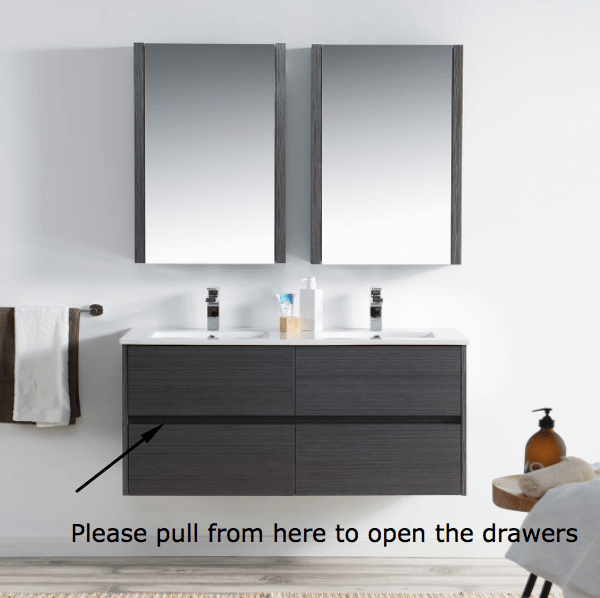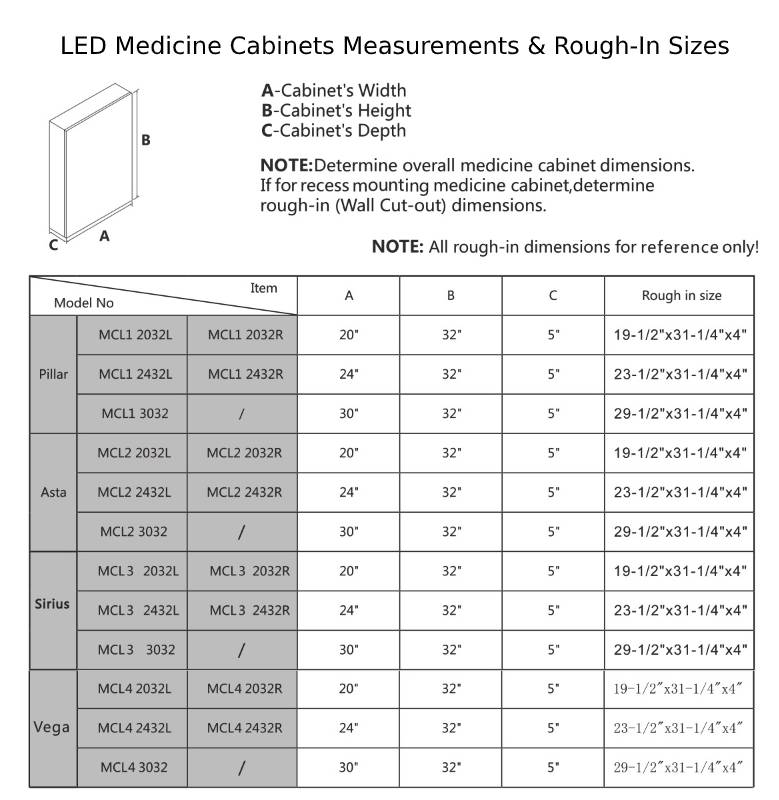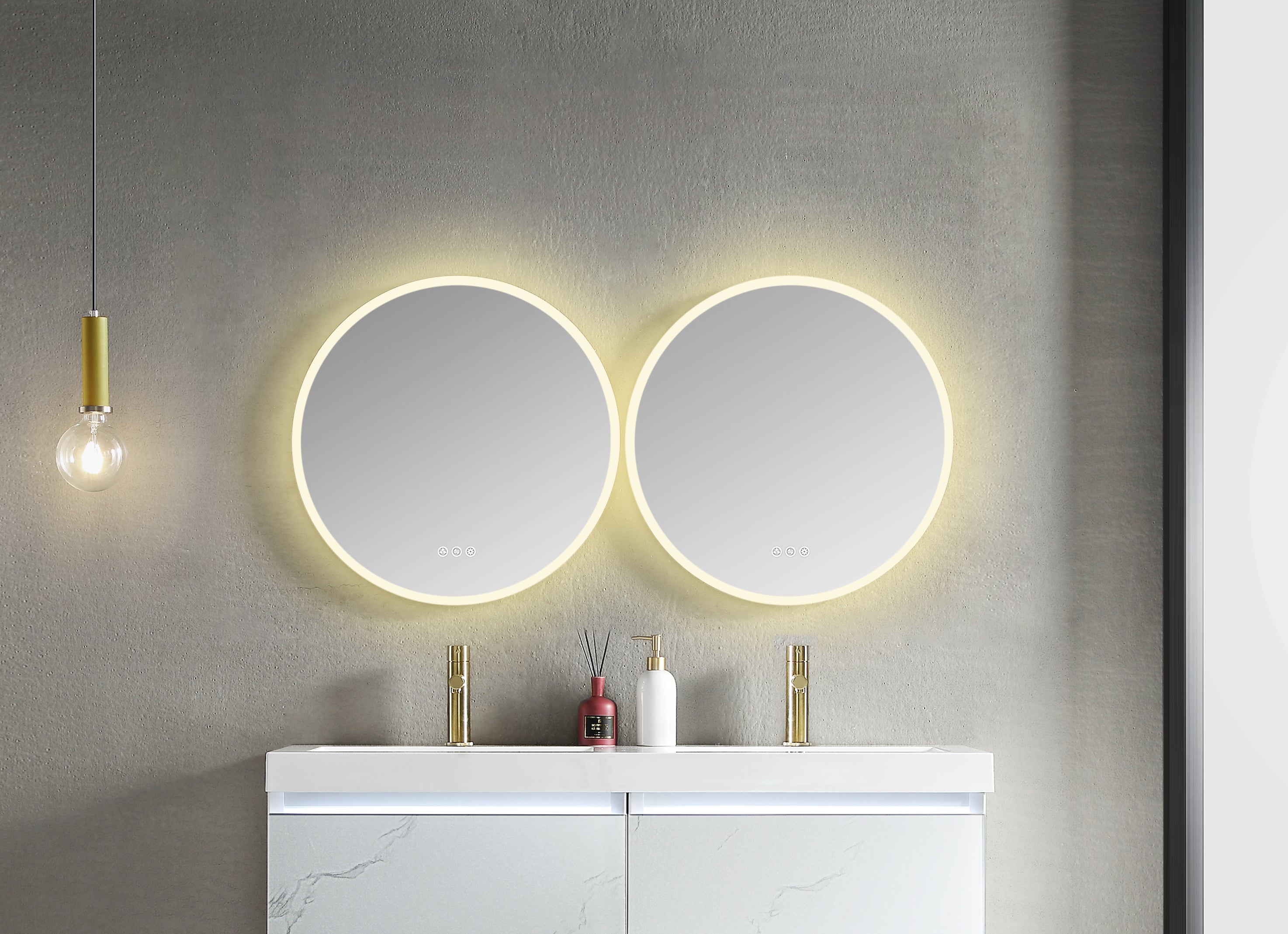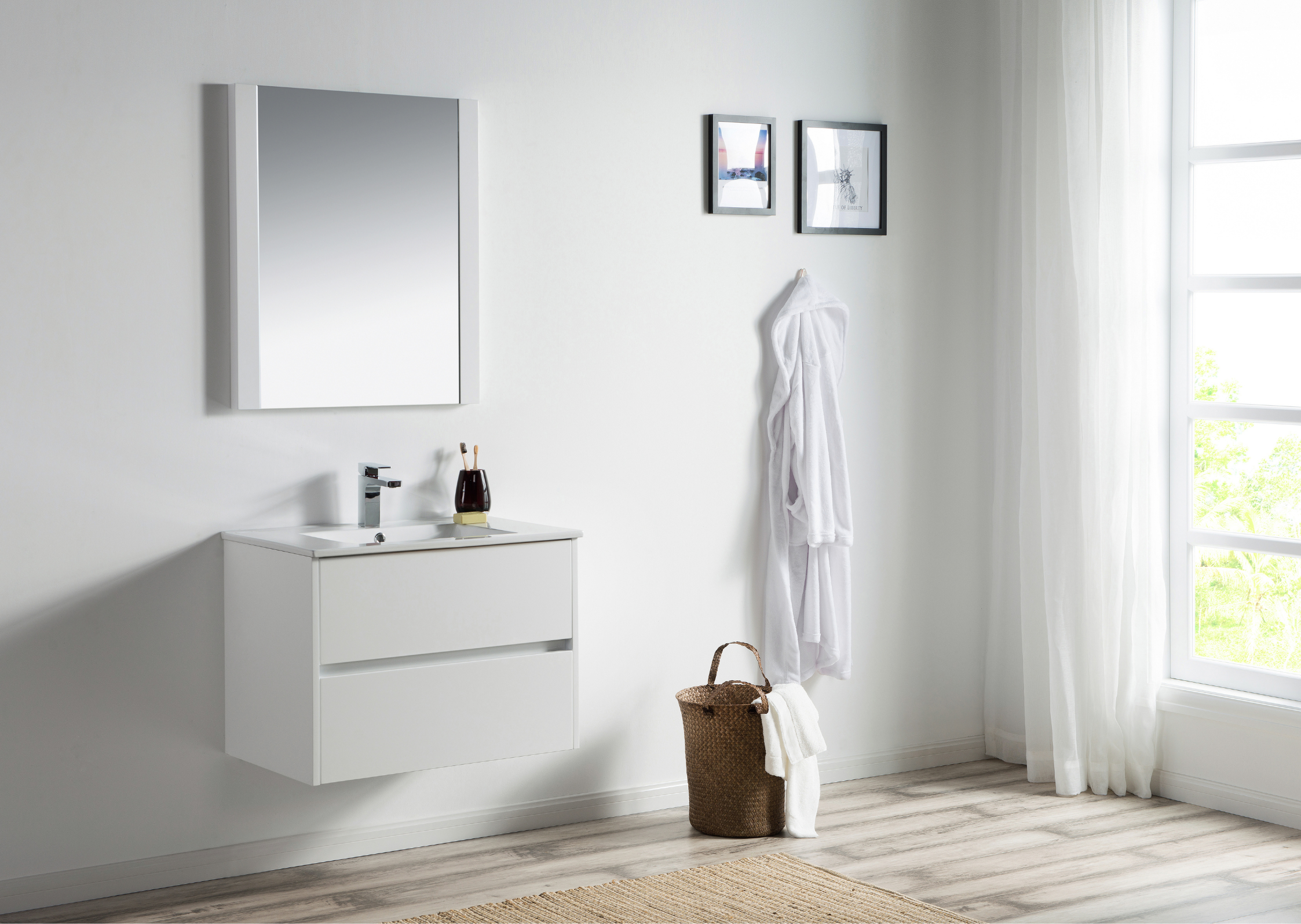SKU:A10 2418 25
Blossom 24" x 18" White Rectangular Acrylic Vanity Top With Integrated Single Sink And Overflow
Blossom 24" x 18" White Rectangular Acrylic Vanity Top With Integrated Single Sink And Overflow
Width

24 Inches

20 Inches

30 Inches

36 Inches

48 Inches
Drain With Overflow
-- Please Select --

Blossom 1.25" Chrome Brass Pop-Up Sink Drain With Overflow +$54.00

Blossom 1.25" Brushed Nickel Brass Pop-Up Sink Drain With Overflow +$58.50

Blossom 1.25" Matte Black Brass Pop-Up Sink Drain With Overflow +$58.50

Blossom 1.25" Brushed Gold Brass Pop-Up Sink Drain With Overflow +$63.00
No, Thank You
Faucet
-- Please Select --
Chrome

Blossom F01 101 5" x 7" Chrome Lever Handle Bathroom Sink Single Hole Faucet +$333.00

Blossom F01 102 5" x 6" Chrome Lever Handle Bathroom Sink Single Hole Faucet +$162.00

Blossom F01 103 5" x 7" Chrome Lever Handle Bathroom Sink Single Hole Faucet +$229.50

Blossom F01 106 5" x 6" Chrome Lever Handle Bathroom Sink Single Hole Faucet +$180.00

Blossom F01 111 5" x 6" Chrome Lever Handle Bathroom Sink Single Hole Faucet +$198.00

Blossom F01 113 5" x 7" Chrome Lever Handle Bathroom Sink Single Hole Faucet +$225.00

Blossom F01 116 4" x 7" Chrome Lever Handle Bathroom Sink Single Hole Faucet +$135.00

Blossom F01 118 5" x 6" Chrome Lever Handle Bathroom Sink Single Hole Faucet +$207.00

Blossom F01 119 4" x 6" Chrome Lever Handle Bathroom Sink Single Hole Faucet +$162.00

Blossom F01 120 4" x 6" Chrome Lever Handle Bathroom Sink Single Hole Faucet +$180.00

Blossom Diamond Series Sancy 5" x 6" Chrome Lever Handle Bathroom Sink Single Hole Faucet +$162.00

Blossom Diamond Series Jubilee 5" x 7" Chrome Lever Handle Bathroom Sink Single Hole Faucet +$189.00
Brushed Nickel

Blossom F01 101 5" x 7" Brushed Nickel Lever Handle Bathroom Sink Single Hole Faucet +$360.00

Blossom F01 102 5" x 6" Brushed Nickel Lever Handle Bathroom Sink Single Hole Faucet +$189.00

Blossom F01 111 5" x 6" Brushed Nickel Lever Handle Bathroom Sink Single Hole Faucet +$189.00

Blossom F01 113 5" x 7" Brushed Nickel Lever Handle Bathroom Sink Single Hole Faucet +$243.00

Blossom F01 116 4" x 7" Brushed Nickel Lever Handle Bathroom Sink Single Hole Faucet +$189.00

Blossom F01 118 5" x 6" Brushed Nickel Lever Handle Bathroom Sink Single Hole Faucet +$234.00

Blossom F01 119 4" x 6" Brushed Nickel Lever Handle Bathroom Sink Single Hole Faucet +$180.00

Blossom F01 120 4" x 6" Brushed Nickel Lever Handle Bathroom Sink Single Hole Faucet +$207.00

Blossom F01 301 5" x 7" Brushed Nickel Lever Handle Bathroom Sink Single Hole Faucet +$270.00

Blossom Diamond Series Sancy 5" x 6" Brushed Nickel Lever Handle Bathroom Sink Single Hole Faucet +$189.00

Blossom Diamond Series Jubilee 5" x 7" Brushed Nickel Lever Handle Bathroom Sink Single Hole Faucet +$225.00
Chrome / White

Blossom F01 106 5" x 6" Chrome / White Lever Handle Bathroom Sink Single Hole Faucet +$243.00

Blossom F01 111 5" x 6" Chrome / White Lever Handle Bathroom Sink Single Hole Faucet +$189.00

Blossom F01 120 4" x 6" Chrome / White Lever Handle Bathroom Sink Single Hole Faucet +$207.00
Matte Black

Blossom F01 102 5" x 6" Matte Black Lever Handle Bathroom Sink Single Hole Faucet +$189.00

Blossom F01 116 4" x 7" Matte Black Lever Handle Bathroom Sink Single Hole Faucet +$180.00

Blossom F01 118 5" x 6" Matte Black Lever Handle Bathroom Sink Single Hole Faucet +$225.00

Blossom F01 120 4" x 6" Matte Black Lever Handle Bathroom Sink Single Hole Faucet +$180.00
Chrome / Matte Black

Blossom F01 120 4" x 6" Chrome / Matte Black Lever Handle Bathroom Sink Single Hole Faucet +$189.00
Brushed Gold

Blossom F01 102 5" x 6" Brushed Gold Lever Handle Bathroom Sink Single Hole Faucet +$198.00

Blossom F01 116 4" x 7" Brushed Gold Lever Handle Bathroom Sink Single Hole Faucet +$198.00

Blossom F01 118 5" x 6" Brushed Gold Lever Handle Bathroom Sink Single Hole Faucet +$243.00
No, Thank You
Trap
-- Please Select --

Blossom 1.25" Chrome Brass Round Bottle Trap +$67.50

Blossom 2.5" Chrome Brass P-Trap +$27.00

Blossom 1.25" Brushed Nickel Brass Bottle Trap +$76.50
No, Thank You
Couldn't load pickup availability
- Free Shipping on Orders Over $300
- Same-Day Order Processing
- Easy Monthly Installments Starting at 0% APR*
• Text or call 800-614-7411
• Email support@usbathstore.com
• Start a live chat
Our team is available to serve you 8:00 AM - 11:59 PM ET, 7 days a week.
Share
Discover more from Blossom
See all from Blossom →Blossom 1.25" Brushed Gold Brass Pop-Up Sink Drain With Overflow
Regular price $63Regular priceUnit price per$70Sale price $63Blossom 36" x 18" White Rectangular Acrylic Vanity Top With Integrated Single Sink And Overflow
Regular price $599.99Regular price Sale price $599.99Unit price perBlossom 1.25" Chrome Brass Pop-Up Sink Drain With Overflow
Regular price $54Regular priceUnit price per$60Sale price $54Blossom Milan 20" 1-Drawer White Freestanding Vanity Set With Ceramic Drop-In Single Sink
Regular price $621Regular priceUnit price per$690Sale price $621Blossom Positano 48" 1-Drawer Matte White Wall-Mounted Single Vanity Base
Regular price $945Regular priceUnit price per$1,050Sale price $945Blossom 48" x 18" White Rectangular Acrylic Vanity Top With Integrated Double Sink And Overflow
Regular price $999.99Regular price Sale price $999.99Unit price per
You may also like
See all from the bathroom sink category →Pelican Int'l Pearl Series PL-3099 18" x 13" White Porcelain Undermount Bathroom Sink
Regular price $99Regular price Sale price $99Unit price perPelican Int'l Pearl Series PL-3059 17 1/4" x 14" White Porcelain Undermount Bathroom Sink
Regular price $69.99Regular price Sale price $69.99Unit price perPelican Int'l Pearl Series PL-3059 17 1/4" x 14" Individually Packaged White Porcelain Undermount Bathroom Sink
Regular price $99.99Regular price Sale price $99.99Unit price perPelican Int'l Cascade Series PL-8113 Single Hole Bathroom Faucet In Chrome Finish
Regular price $99.99Regular price Sale price $99.99Unit price perCastello USA Pyramid 30" Black Wall-Mounted Bathroom Sink With Faucet Hole
Regular price $1,149Regular price Sale price $1,149Unit price perPelican Int'l Pearl Series PL-3099 18" x 13" Bone Porcelain Undermount Bathroom Sink
Regular price $89.99Regular price Sale price $89.99Unit price per
Stay cozy with a towel warmer
See all towel warmers →Amba Radiant Straight 10-Bar Satin Brass Hardwired and Plug-In Combo Towel Warmer
Regular price $570Regular price Sale price $570Unit price perCozy in Paris Rhea 24" x 55" 400 W 475 BTU Chrome Electric Heating Wall-Mounted Towel Warmer
Regular price $949Regular price Sale price $949Unit price perAmba Jeeves D Straight 20-Bar Polished Stainless Steel Finish Hardwired Towel Warmer
Regular price $1,740Regular price Sale price $1,740Unit price perWarmlyYours Vida 24" x 59" Polished Stainless Steel Wall-Mounted 21-Bar Hardwired Towel Warmer
Regular price $570Regular priceUnit price per$600Sale price $570Amba Cape 2332 12-Straight Bar Hardwired Polished Stainless Steel Towel Warmer
Regular price $650Regular price Sale price $650Unit price perAmba Traditional 25" 8-Bar Brushed Bronze Hardwired Towel Warmer
Regular price $1,540Regular price Sale price $1,540Unit price per
What our customers are saying...
-

What an excellent company and excellent products. Just like the old days when companies really cared about their customers, these guys are awesome!!!
Betty C.
Warminster, Pennsylvania
-

I was greeting in chat soon after logging into their web. She was genuine and very helpful in getting me the correct items I needed. The communication about shipping and tracking was great as well. My mind was at ease concerning my investment purchase! Thank you!
Jolene
San Jose, California
-

I've been extremely imporessed with the service--from the actual humans answeing phone calls to the accurate and prompt follow up, including and unrequested phone call to follow up on my order delivery requests.
Monica
Fairfax County, Virginia










 Don’t think you can install a few lights and call it a day: because bathrooms are sometimes small and/or dark and filled with mirrors (which complicates how light bounces around), lighting requires careful thought and placement. The simplest way to light a bath is a single diffuse light in the center of the ceiling.
Don’t think you can install a few lights and call it a day: because bathrooms are sometimes small and/or dark and filled with mirrors (which complicates how light bounces around), lighting requires careful thought and placement. The simplest way to light a bath is a single diffuse light in the center of the ceiling.




































































